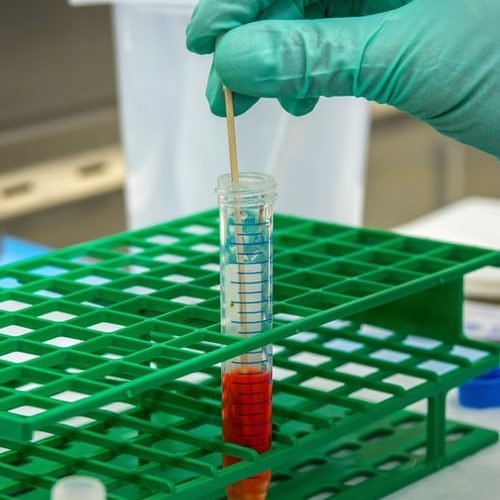
How Accurate Are COVID-19 PCR Tests?
Testing for COVID-19 has changed a lot within a relatively short amount of time. You might recall a time when testing required long waits in your vehicle, several days of waiting before receiving results. Now at-home rapid testing is available at most neighborhood pharmacies, straightforward enough you can administer yourself and have results within minutes.
While the FDA has approved multiple types of testing for COVID-19, variables exist that make some tests more accurate than others, while others are more accessible. The most accurate kinds of COVID-19 test are what’s called COVID-19 PCR tests, which detect genetic material of the virus from patient samples. Let’s explore what a PCR test is, PCR test accuracy, and what makes it different from other forms of COVID-19 testing.
Are the COVID19 PCR tests accurate?
Testing for COVID remains one of the most important tools for combatting the virus. Not only does testing help us identify potential spread in a given community, but we learn more about the virus and how it spreads when testing is widely available and practiced.
As different tests have become available—from the aforementioned PCR, to rapid antigen tests—the general public has had valid questions about accuracy. Why are some tests more accurate than others? The answer can be related to the type of test administered, when the test was conducted, what stage the virus was at during the time of testing, and potential human error.
The COVID-19 PCR test is known as the gold standard of COVID testing. Once a sample is collected, it requires laboratory analysis where a PCR machine identifies viral genetic material, duplicates the SARS-CoV-2 genetic material, and a positive result is identified when a certain fluorescent light is produced by ample amounts of the COVID genetic material. This makes it more accurate than an antigen test, or rapid testing.
Why are antigen rapid tests still widely used? Antigen tests detect a certain protein found on the surface of a virus. The test requires a nasal or saliva sample, but it uses a test-strip method instead of receiving analysis from a lab. That makes the process quick and cheap, but inherently less accurate. Antigen tests have a sensitivity between 50% to 90%, which produces many false negatives.
When is the COVID19 test most accurate?
When a person gets tested can affect whether the test produces a negative or positive result. We now know that testing within three days of exposure to the virus has a lower accuracy rating. More accurate results occur when patients are tested five to seven days after exposure, and this is due to the virus having ample time to replicate.
As the PCR tests identify genetic makeup from the virus, an infected person can produce a negative result because there’s not enough genetic material to be found, even in laboratory analysis.
Researchers have also discovered that, along with testing five to seven days after exposure, they are more likely to detect COVID when the patient is displaying symptoms. Symptoms can indicate the body is actively fighting an infection like COVID, or that the infection is so strong that it’s affecting certain bodily functions.
How reliable is the test for COVID19?
False negative results can occur in both antigen and PCR tests—and typically this is a result of a poor sample, or the sample did not contain enough genetic material from the virus to be detected. That’s why scientists recommend that, if an antigen test produces a negative result for someone displaying symptoms, they should also receive a PCR test to validate that result. Even with a low viral load sample, PCR tests duplicate the small amount of genetic material to be able to better detect infection.
False positives can occur for a few different reasons, but the FDA noted their prevalence when samples are not handled according to the manufacturer’s instructions, leaving some chance for error during testing. They noted the possibility of inaccuracy during batch mode testing, where multiple samples were being tested, and when cross-contamination was a potential risk for false positives.
The likelihood of false negatives and false positives in PCR testing is fairly low. The PCR COVID test accuracy is measured in how many positive cases it detects. And a study in January of 2021 found mucus PCR tests diagnosed COVID-19 correctly in 97.2% of cases.
While PCR may require more resources and time, the benefit of having an accurate way of detecting COVID infection is instrumental for learning how and where the virus spreads. Not only do we learn more about it, but we can more quickly help individuals and communities isolate and quarantine to stop the spread.
BioCollections Worldwide is dedicated to providing excellent resources towards COVID-19 testing and research. We understand the importance of testing, and we were already developing COVID tests prior to the pandemic. You want the best when dealing with the severity of COVID, and BioCollections can provide straightforward, affordable, fast testing.
With over twenty years’ experience, over six locations in the US—and more affiliates and subsidiaries internationally—we look to provide exceptional testing wherever needed.

Thank you for sharing superb informations. Your web-site is very cool. I’m impressed by the details that you have on this site. It reveals how nicely you understand this subject. Bookmarked this web page, will come back for more articles. You, my friend, ROCK! I found simply the information I already searched everywhere and simply could not come across. What an ideal web-site.